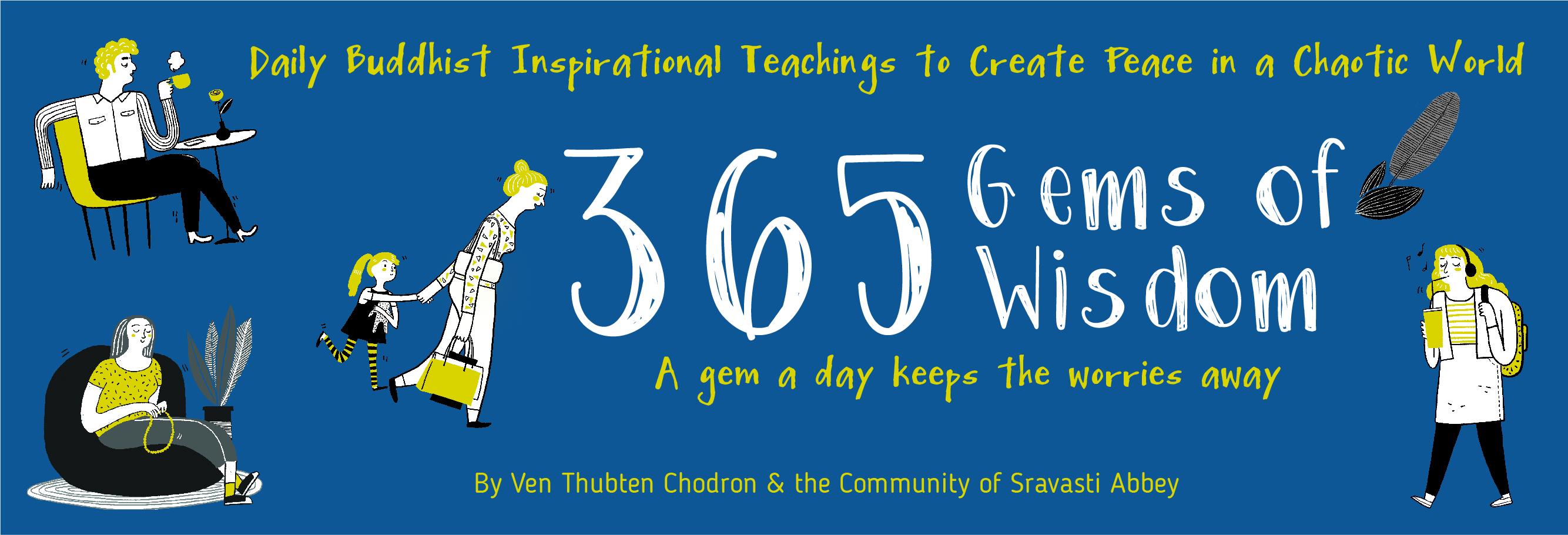August 27 : Justifying Our Anger
What keeps us from dealing with our anger so often is when we feel it is justified. “Any normal, regular person would be upset by this. If I am not upset, the other person is going to stomp all over me, they are going to take advantage of me. For their own benefit, they need to be stopped, because otherwise, they’re going to create so much negative karma. Out of compassion, I’m going to slam them.”
We justify our anger. “I do not need to apply an antidote. I need to put this person in his place.” This fear of being taken advantage of is something very strong in us. “Wow, somebody is going to trounce me if I am not careful.” Any slight thing somebody does becomes a big thing that you have got to get angry about and stand up for yourself. Otherwise, they will just continue taking advantage of you.
At airports, I run into this a lot. Some people think that they are going to get where we are going faster if they cut in front of me in the queue. “That is okay, go ahead.” Also, when you are driving, let the other person go ahead, rather than crash your car and get all excited with road rage. It really does not matter. Unfortunately, most people are like, “That is my place on the highway that is not moving.”
Another way in which I see people not wanting to oppose their anger is similar but a little bit different. They see a situation of injustice and think, “If I do not get angry about it and do something, nobody will do anything, and the injustice will continue.” Many people feel like anger is the only motivating factor we can have to correct injustice in the world. I really disagree with that. Compassion can be something very, very strong that makes you intercede. You intercede in a completely different way if you are compassionate than if you are angry.
These are some of the arguments that I hear from people as to why they do not want to do anything with their anger, and why they think their anger is good.
Before we even think about applying the antidotes to the anger, we should overcome these kinds of justifications and rationalisations in our minds. When we are angry, we have lots of good reasons on why we should be, don’t we? Chief of which is, “I am right and they are wrong.” Or “They need to respect me and they are not.” Can we look at disrespect or injustice with compassion, without needing to get angry about it?
“365 Gems of Wisdom” e-book is out now!

